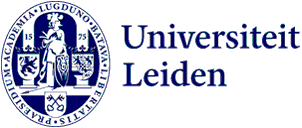
‘Nice tool but what are we supposed to do with it?’
Public agencies are keen to use new technology such as AI to speed up their primary processes. But the internal organisation is often a major stumbling block. SAILS researcher Friso Selten conducts research at the interface between data science and public administration.
Series
What does AI mean for... the public sector?
What many public organisations wish for most is digital technology that helps them perform their primary tasks faster and more effectively. These dreams have become all the more vivid with the rise of artificial intelligence. An algorithm, for instance, that would make it easier for police officers to analyse camera images or AI that would help civil servants search through documents and respond much faster to freedom of information requests.
But between dream and reality are practical objections. Many public organisations are racking their brains about how to implement new technology in their existing processes. This is not only a technical but also a public administration challenge. And this is precisely where Friso Selten’s PhD research comes in. Selten is affiliated with Leiden’s SAILS (Society, Artificial Intelligence and Life Sciences) interdisciplinary research programme and has a background in public administration and data science. His research looks at what skills public organisations – mainly within the area of security and justice – need in order to develop and integrate digital technology, such as AI, into their primary processes.

What kind of issues are public organisations facing when developing and deploying AI?
‘That is mainly in three areas of a framework that is often used to study innovation, the TOE framework. TOE stands for Technology, Organisation and Environment. With regard to Technology and Organisation, public organisations often experience tension between wanting to innovate and struggling with outdated ICT systems. There is often internal pressure, for cost reasons, to keep existing ICT processes running and to optimise them. Another problem is data that has not yet been digitised. People often don’t know where data is located, what exactly they can use and what the quality of that data is.
‘With regard to Environment, one problem is regulation, for example the interaction between AI development and GDPR compliance. Technicians and legal experts do not speak each other’s language well enough, when it is very important to be clear about how exactly an AI system is allowed to operate and what data and system it is can use.’
What skills within public organisations do you study exactly?
‘I research process conditions. How to shape good collaboration, how to foster creativity in project teams and what project management skills and kind of people are needed. I do this through interviews and am shadowing a team that is developing a Natural Language Processing tool to enable smarter searches of archives.’
What have you discovered so far?
‘Public agencies struggle with where to put their data expertise in the organisation. There are two flavours: either you create a standalone data-science team that will come up with innovations or you put data-science experts in implementation teams. In the former you put your data scientists together in a team and give them as their assignment: do innovative things. But where it often goes wrong is how things work in practice. You find that a model doesn’t fit the existing IT architecture. Or the implementing staff say: nice tool but what exactly are we supposed to do with it?
‘With the second flavour you have a professional with a technical background in your implementation team. Someone who sees a particular problem when going about their tasks and thinks: “Ah! I can build a nice tool for that.” But these pioneers are often completely unaware of legislation or ethical issues. Or they use software with vulnerabilities. And they often forget to document things properly. Then, when that person leaves the organisation, no one knows how that self-built tool works. To bring these two flavours together, you could create a hub connecting technical innovators with operational staff.’
There has long been talk about the digital transformation of public organisations. Will AI be responsible for the breakthrough?
‘I don’t think AI will have that much of an impact in the short term. At the moment, there is mainly a lot of experimentation going on at public organisations. That’s important because then these coordination issues between technology and practice come to the surface, as do problems using outdated software. You often find that very advanced technologies just can’t be implemented because the organisation isn’t ready at an administrative and technical level.
At the moment it is mainly the innovation process itself that is having an effect, more so than the intended innovation itself. In the long term, I think that AI or new digital technology in a broad sense will definitely help public organisations process data faster and interact with citizens.’
Friso Selten’s research will run until the summer of 2025.
Text: Jan Joost Aten
The image above this article was created with Dall-E, an AI program that creates images from text descriptions. Term used: ‘computer innovation’.
About SAILS
Leiden University’s SAILS (Social Artificial Intelligence and Life Sciences) initiative is a university-wide network of AI researchers from all seven faculties: Law, Science, Archaeology, Social and Behavioural Sciences, Humanities, Governance and Global Affairs, and the Leiden University Medical Center.
We look at AI from a human perspective. Our research focuses on the equitable use of AI in and for society. We want to increase our knowledge about AI and its beneficial uses in society. Then we can help society meet today’s challenges. We are convinced that this goal can only be achieved by bringing together scientific talents and insights from all disciplines, by sharing knowledge, by inspiring others at events and by training our students to become the AI professionals of the future. Because Leiden University believes that the future of AI is human.
